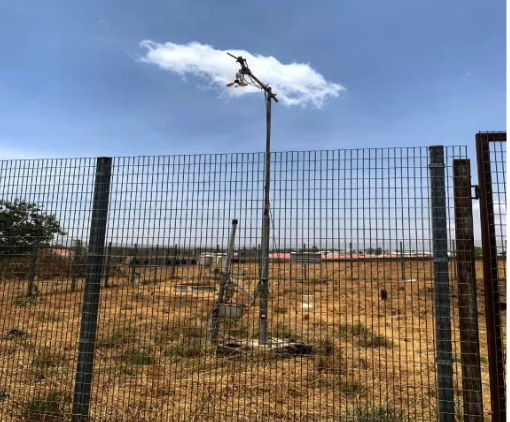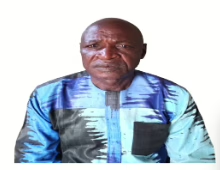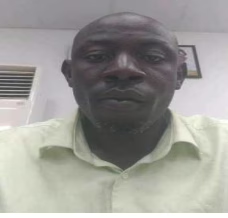Department
Geography
Introduction to Geography
History of Geography Department
ADMISSION OPTIONS
100 Level Admissions | Direct Entry Admissions
Admission Requirements
Entry Requirements to the department (Conditions of Entry into B. Sc Geography)

- Pass the Unified Tertiary Matriculation Examination (UTME) in the acceptable subjects
- Have five credits which must include Geography, English Language, Mathematics, and any other two social or natural science subjects in the Senior Secondary School Certificate Examination or the General Certificate of Education Examination from WAEC or NECO or NABTEB, obtained at not more than two (2) sittings.
- Pass in the Remedial Studies of the Plateau State University in the relevant subjects including geography, Mathematics and English Language. Such candidates also enter the programme at the 100 level.
- Candidates seeking Direct Entry admission should in addition to the ‘O Level requirements have at least two A’ Level subjects, one of which must be geography.
Please note that submission of Joint Admissions and Matriculation Board (JAMB) results is not mandatory at this stage. However, upon admission to the university, the provided results will be thoroughly verified for authenticity and compliance with the stated criteria, including JAMB Registration.
| 1st Semester | Units |
|---|---|
| Introduction to physical geography | 2 |
| Introduction to human geography | 2 |
| Introduction to environmental sciences | 2 |
| Introduction to Hospitality & Tourism Management | 2 |
| Eco-tourism Management | 2 |
| Communication in English | 3 |
| Philosophy and logic | 2 |
| Elementary Mathematics I | 3 |
| Contemporary Health Issues (Elective) | 2 |
| 2nd Semester | Units |
|---|---|
| Introduction to practical Geography | 3 |
| Introduction to survey and cartography | 3 |
| Introduction to Computer application in geography | 3 |
| Local field studies (Bokkos and environs) | 3 |
| Leisure and Tourism in a diverse society | 2 |
| Housekeeping management | 2 |
| Recreation & Tourism attraction management | 2 |
| 1st Semester | Units |
|---|---|
| Introduction to Geomorphology and Soil Geography | 2 |
| Introduction to Climatology and Biogeography | 2 |
| Spatial organization of Society | 2 |
| Cartography | 3 |
| Ethics in Tourism and Hospitality Industry | 2 |
| Food and beverages production and service management | 2 |
| Catering operations & services | 2 |
| Entrepreneurship and Innovation | 2 |
| Contemporary Health Issues (Elective) | 2 |
| 2nd Semester | Units |
|---|---|
| Introduction to remote sensing and GIS | 3 |
| Map Analysis | 2 |
| Land Surveying | 2 |
| Statistics for Geographers | 2 |
| Field study of the Jos-Plateau and Benue Lowlands | 3 |
| Tourism planning and development | 2 |
| Lodging operations management | 2 |
| 1st Semester | Units |
|---|---|
| History of geographical thought | 2 |
| Geomorphology | 2 |
| Science of climate change | 2 |
| Biogeography | 2 |
| Research Method | 2 |
| Remote sensing and GIS I | 2 |
| Economic Geography | 2 |
| Settlement Geography | 2 |
| Statistical Tech. In geo (descriptive) | 2 |
| 2nd Semester | Units |
|---|---|
| SIWES | 6 |
| Field course | 2 |
| Venture creation | 2 |
| General Physics II – Electricity & Magnetism | 2 |
| General Practical Physics II | 1 |
| Introduction to Web Technologies | 3 |
| Communication in English II | 2 |
| 1st Semester | Units |
|---|---|
| Systematic geo of Nigeria | 2 |
| Contemporary Pluto & methodology in geo | 2 |
| Research Method II | 2 |
| Qualitative techniques in geo II | 2 |
| Remote sensing & his | 3 |
| Systematic Geo in Nig. (phy) | 2 |
| Tourism Hospitality Marketing | 2 |
| Reservation and Front Desk Management | 2 |
| Contemporary Health Issues (Elective) | 2 |
| 2nd Semester | Units |
|---|---|
| Project | 6 |
| Applied climatology & climate change | 2 |
| Systematic Geo in Nig. (human) | 2 |
| Geography of developing world | 2 |
| Organizational Behaviour in Tourism and Hospitality Firms | 2 |
| Seminar in Hospitality Management .Tourism | 2 |
| Field Trips in Tourism and Hospitality Industry | 2 |
Two electives should be chosen. At least one from either of the sections below.
Physical Geography
Course Code | Course Title | Credits | Semester | Pre-requisites |
GEO 414 | Hydrology | 2 | 1 | GEO 302, 303 |
GEO 415 | Tropical Geomorphology | 2 | 1 | GEO 302 |
GEO 416 | Tropical Climatology | 2 | 1 | GEO 303 |
GEO 417 | Soil Science (Pedology) | 2 | 1 | GEO 302, 304 |
GEO 422 | Fluvial Geomorphology | 2 | 2 | GEO 302 |
GEO 424 | Water Resources Management | 2 | 2 | GEO 302, 303 |
GEO 425 | Micro-Meteorology & Weather Forecasting | 2 | 2 | GEO 303 |
GEO 427 | Vegetation Studies | 2 | 2 | GEO 304 |
Human Geography
Course Code | Course Title | Credit | Semester | Pre-requisites |
GEO 431 | Demography | 2 | 1 | GEO 310 |
GEO 432 | Medical Geography | 2 | 1 | GEO 310 |
GEO 433 | Transportation Geography | 2 | 1 | GEO 306 |
GEO 434 | Rural Geography | 2 | 1 | GEO 310, 307 |
GEO 441 | Geography of Developed World | 2 | 2 | |
GEO 442 | Locational Analysis | 2 | 2 | GEO 306 |
GEO 443 | Urban Geography | 2 | 2 | GEO 306 |
GEO 444 | Agricultural Geography | 2 | 2 | GEO 306 |
GEO 445 | Globalization and Regionalization | 2 | 2 | GEO 306 |
Environmental Planning
Course Code | Course Title | Credits | Semester | Pre-requisites |
GEO 451 | Environmental and Resources Management | 2 | 1 | GEO 204 |
GEO 452 | Land Degradation & Terrain Evaluation | 2 | 1 | GEO 302 |
GEO 455 | Air Pollution, Waste Management & Sanitation | 2 | 1 | GEO 204 |
GEO 456 | Resource Use, Conservation and Sustainability | 2 | 1 | GEO 204 |
GEO 461 | Environmental Health | 2 | 2 | GEO 204 |
GEO 462 | Flood Management | 2 | 2 | GEO 302 |
GEO 465 | Environmental Economics | 2 | 2 | GEO 204 |
GEO 466 | Global Environmental Change | 2 | 2 | GEO 204 |
Techniques
Course Code | Course Title | Credits | Semester | Pre-requisites |
GEO 471 | Advanced Cartography | 2 | 1 | GEO 205 |
GEO 472 | Remote Sensing Techniques and Applications | 2 | 1 | GEO 206 |
GEO 473 | Techniques for Environmental Impact Assessment | 2 | 1 | |
GEO 481 | Application to Geographical Information Systems (GIS) Techniques and Modelling | 2 | 2 | GEO 407 |
GEO 482 | Advanced Land Surveying | 2 | 2 | GEO 208 |
GEO 483 | Weather Observation, Presentation & Forecasting | 2 | 2 | GEO 303 |
At least one elective should be chosen from either first or second semester.
Course Code | Course Title | Credits | Semester | Pre-requisites |
PLASU-HMT 428 | International Tourism & Hospitality Management | 2 | 2 | PLASU-HMT 226 |
PLASU-HMT 427 | Event Management for Hospitality & Tourism Industry | 2 | 2 | PLASU-HMT 226 |
PLASU-HMT 413 | Travel & Tourism Management | 2 | 1 | PLASU-HMT 227 |
PLASU-HMT 412 | Nigerian Tourism & Hospitality Management | 2 | 1 | PLASU-HMT 226 |
Curriculum
Departmental Courses (Compulsory and Required)
The faculty is available to students through forums, email, and phone calls. Students also have access to a variety of resources, including a state-of-the-art e-library, virtual computer labs, a career center, and a variety of student organisations.
Curriculum
Departmental Courses (Compulsory and Required)
The faculty is available to students through forums, email, and phone calls. Students also have access to a variety of resources, including a state-of-the-art e-library, virtual computer labs, a career center, and a variety of student organisations.
Head of Department

Dr. Joshua Yohanna Gwanshak
Head of Geography Department
Dr. Joshua Yohanna Gwanshak, a native of Ron, Bokkos Local Government Area, Plateau State was born 12th October, 1972 at Wumat-Tarangol of Bokkos LGA. He is married to Mrs. Rifkatu Joshua Gwanshak and had five (5) Children. Dr. Joshua Yohanna Gwanshak attended Government Teachers College, Langtang and graduated in 1988, College of Education, Akwanga, 1991-1994, University of Jos and obtained BSc. (Ed) Geography, 2004, University of Jos M.Sc. Population and Manpower Planning in 2010. Dr. Gwanshak, attended University of Malaya-Malaysia for his Doctor of Philosophy (PhD) 2018-2022 in the Faculty of Art and Social Sciences, Department of Geography. His field of specialty is (Human Geography) Population and Manpower Planning and Migration Studies. Presently, Dr. Joshau Yohanna Gwanshak is the Head, Department of Geography, Plateau State University, Bokkos in the Faculty of environmental Sciences. He has published many Scholarly articles in reputable journals, presented papers at Conferences and a member of Association of Nigerian Geographers (ANG) AND Population Association of Nigeria (PAN) etc. Dr. Joshua Yohanna Gwanshak is a Senior Lecturer, Department of Geography.
Departmental Staff:
The Faculty of environmental sciences has well trained and dedicated lecturers with various specializations and track records of research activities required for the effective training of students. The faculty has maintained its vision of pursuing research and training in the humanities through integrated team work with its successive deans:

Dr. Solomon Zitta Wuyep
Departmental Staff

Dr. Joshua Yohanna Gwanshak
Deparmental Staff

Daloeng Hyacinth Madaki
Departmental Staff

Dr. Vincent Dung Choji
Departmental Staff

Dr. Hassan Buhari Arin
Departmental Staff

Dr. Ishaku Asukudu Peter
Deparmental Staff

Dr. Kwarfwang Jack Kevin
Departmental Staff

Luka Dung Gyang
Departmental Staff

Dr. Alexandra Simi Ogbole
Departmental Staff

Izang Ajik Dogo
Deparmental Staff

Anuga Lami Lenton
Departmental Staff

Yohanna Para Ezra
Departmental Staff

Nentok Monday Seri
Departmental Staff

Gabriel Stephen Dung
Deparmental Staff
List of Non-Teaching Staff
S/N | Name | Qualification | Designation |
1. | Bulus Vincent Timloh | BA (Ed) Geography & HND Soil Science Tech. | Soil Scientist |
2. | Gabriel Stephen Dung | B. Sc, Environmental Resources Planning | Weather Technology |
3. | Pankut Amina Tyrannus | HND Office Technology and Management | Departmental Secretary |
4 | Gwamsun Mathias Elisha | H N D | Clerical officer |
5. | Adamu Peace | N C.E | Cleaner & Messenger |
Curriculum
Departmental Courses (Compulsory and Required)
The faculty is available to students through forums, email, and phone calls. Students also have access to a variety of resources, including a state-of-the-art e-library, virtual computer labs, a career center, and a variety of student organisations.
CAREER PATH FOR GEOGRAPHY STUDENTS
Geography students can pursue diverse careers, including environmental consulting, urban planning, cartography, GIS/remote sensing, teaching, and research amongst others, leveraging their spatial analysis and problem-solving skills. Here’s a more detailed look at potential career paths for geography students:
1. Environmental and Sustainability Careers
Environmental Consultant – Assess environmental impact and develop sustainability strategies. Advise businesses and organizations on environmental issues and regulations
Conservation Officer – Work in wildlife conservation, forest management, and biodiversity protection.
Environmental Scientist: Research and study environmental problems, develop solutions, and monitor environmental quality.
Nature Conservation Officer: Manage and protect natural areas, wildlife, and ecosystems.
Water Quality Scientist: Analyze water quality, monitor pollution, and develop water management strategies.
- Geoscientist: Study Earth’s physical structure, processes, and resources.
- Hydrologist: Study the movement, distribution, and quality of water on Earth.
- Soil Conservationist: Develop and implement soil conservation practices.
- Pollution Analyst: Investigate and assess pollution sources and impacts.
2. Geospatial and GIS Careers
Geographic Information Systems (GIS) Analyst – Use GIS tools to analyze spatial data for planning and decision-making.
Remote Sensing Specialist – Use satellite imagery to study land use, vegetation, and climate changes.
Cartographer – Create maps for government agencies, businesses, and digital applications.
Surveyor: Measure and map land and property boundaries.
- Geomatics/Land Surveyor: Use geospatial technologies to collect and analyze spatial data.
3. Urban and Regional Planning Careers
Urban Planner – Design and develop sustainable cities, transportation systems, and infrastructure.
Transportation Planner – Improve mobility and transport networks in urban and rural areas- Plan and manage transportation systems.
Housing and Real Estate Analyst – Study land use and property development trends.
Urban Planner: Plan and develop sustainable and efficient urban areas.
- Town Planner: Plan and develop towns and rural areas. .
- Landscape Architect: Design and plan outdoor spaces and landscapes.
- Geopolitical Analyst: Analyze the spatial aspects of political and economic relationships.
4. Disaster and Risk Management Careers
Disaster Management Specialist – Plan for and respond to natural disasters such as floods and earthquakes.
Hydrologist – Study water bodies, flood patterns, and drought impacts.
Emergency Response Coordinator – Develop strategies for disaster preparedness and relief efforts.
5. Education and Research Careers
Lecturer/Teacher – Teach geography at secondary schools, colleges, or universities.
Research Scientist – Conduct research on physical or human geography topics.
Author/Content Creator – Write geography textbooks, research papers, or create educational content.
6. Government and Policy Careers
Environmental Policy Analyst – Develop policies for sustainable development and environmental conservation.
Demographer – Analyze population trends and their impact on society.
Census and Statistics Officer – Work with government agencies to collect and analyze population and economic data.
7. Business and Industry Careers
Market Research Analyst – Use geographic data to study consumer behavior and market trends.
Tourism and Travel Consultant – Develop eco-tourism projects and promote geographical attractions.
Logistics and Supply Chain Manager – Optimize transportation networks for businesses.
8. Military and Intelligence Careers
Geospatial Intelligence Analyst – Use geographic data for national security and military operations.
Defense and Security Consultant – Assess geographical risks and threats in conflict zones.
9. Air Traffic Management and Navigation
Air Traffic Controller – Manage aircraft movement in controlled airspace, ensuring safe takeoffs, landings, and flight routes.
Aeronautical Cartographer – Develop and update aviation maps and charts used by pilots for navigation.
- Flight Dispatcher – Plan flight paths considering weather conditions, fuel efficiency, and air traffic regulations.
10. Maritime Navigation and Logistics
Hydrographer – Conduct underwater mapping and charting to support safe navigation and maritime infrastructure development.
Marine Cartographer – Develop and update nautical charts used for navigation, port planning, and coastal management.
- Shipping and Port Operations Manager – Manage logistics, cargo handling, and operations in seaports and inland waterways.
- Maritime GIS Analyst – Use GIS to analyze shipping routes, ocean currents, and port locations for efficient water transport planning.
11. Hydrology and Waterway Management
Hydrologist – Study water bodies, tides, and river systems to ensure safe and sustainable water transportation.
River Transport Planner – Plan and manage inland waterways for commercial and passenger transport.
- Coastal and Marine Environmental Consultant – Assess the environmental impact of shipping, dredging, and port activities.
12. Research and Policy Development
Maritime Geographer – Study the spatial aspects of global shipping, trade routes, and inland water transport systems.
Marine Resource Manager – Work with governments and international organizations to regulate shipping, fisheries, and coastal resources.
- Water Transportation Policy Analyst – Develop policies for sustainable water transport, safety regulations, and environmental conservation.
13. Disaster and Risk Management
Flood and Coastal Risk Manager – Assess and mitigate risks related to flooding, sea-level rise, and coastal erosion affecting water transport.
Maritime Safety and Security Officer – Work with coast guards and regulatory bodies to enhance safety and security in water transportation.
14. Port and Harbour Development
Port and Harbour Planner – Design and develop efficient port infrastructure, considering factors like tides, sedimentation, and land use.
Dredging Specialist – Manage sediment removal to maintain navigable waterways and prevent siltation in harbors.
Geography provides a broad and flexible foundation, allowing students to work in different sectors depending on their interests and specializations. Let me know if you need more details on any career path! Geography students can pursue diverse careers, including environmental consulting, urban planning, cartography, GIS/remote sensing, teaching, and research amongst others, leveraging their spatial analysis and problem-solving skills. Here’s a more detailed look at potential career paths for geography students:
Other Career Paths:
Teacher: Teach geography at various educational levels.
Librarian: Manage and organize library collections, including maps and geographic data.
Research Scientist: Conduct research in various areas of geography.
Market Researcher: Analyze geographic patterns and trends for business purposes.
Real Estate Appraiser: Assess the value of real estate based on location and other factors.
Travel Agent: Plan and organize travel itineraries based on geographic knowledge.
Park Ranger: Manage and protect parks and natural areas.
Emergency Management Specialist: Prepare for and respond to natural disasters and other emergencies.
